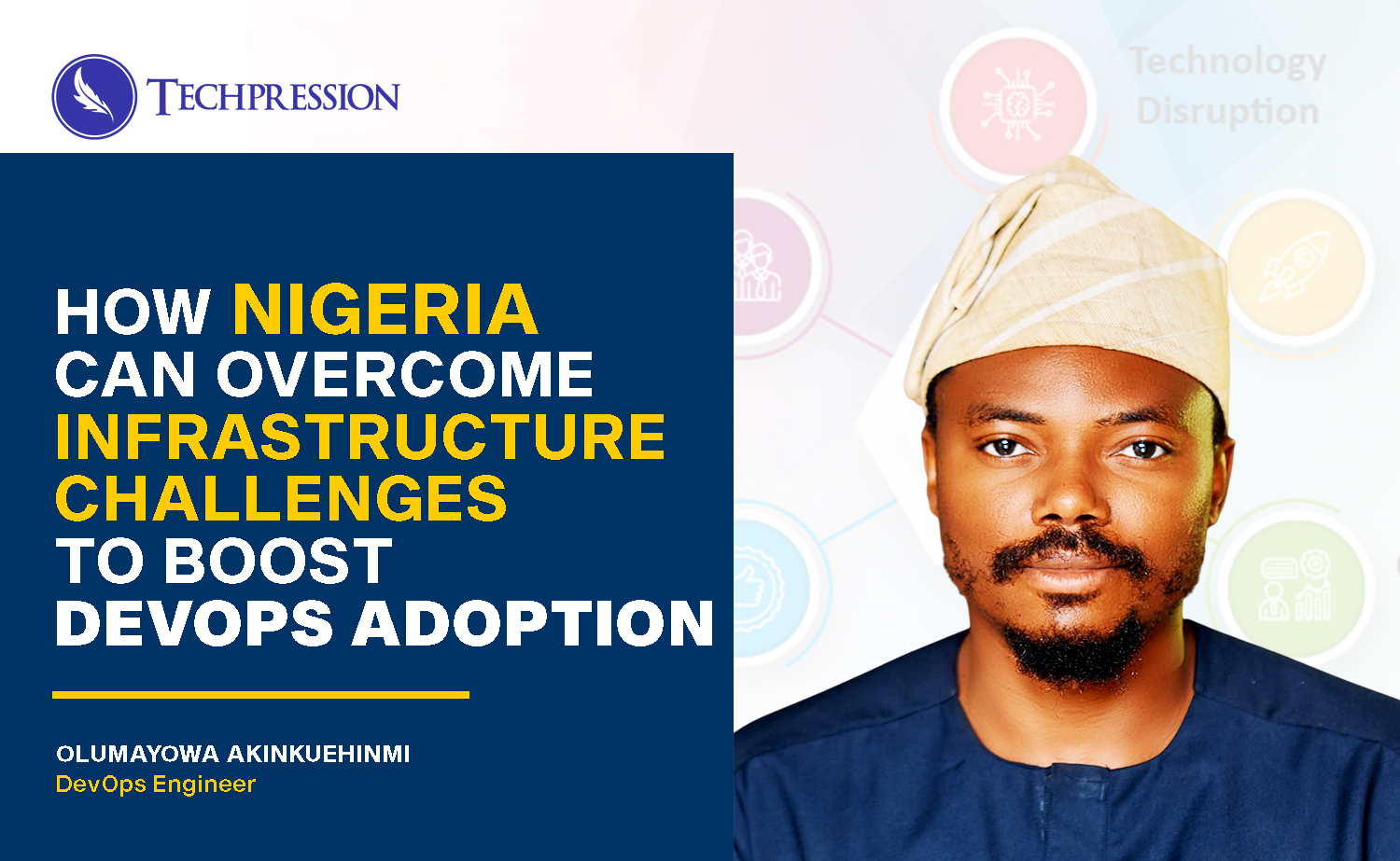As Nigeria’s tech ecosystem evolves, the adoption of DevOps—a methodology that merges software development and IT operations—is critical for businesses aiming to achieve efficiency, scalability, and collaboration.
However, infrastructural challenges, such as unreliable internet, inconsistent power supply, and limited access to cloud infrastructure, pose significant hurdles to widespread DevOps adoption.
Read also: How fintech companies are revolutionising Africa’s financial sector
In this interview, Olumayowa Akinkuehinmi, a seasoned DevOps Engineer with extensive experience spanning enterprise networks, submarine cable deployments, and DevOps leadership, shares his perspectives on overcoming these barriers. His insights shed light on the steps Nigeria must take to leverage the full potential of DevOps practices and drive innovation.
What are the primary challenges hindering DevOps adoption in Nigeria?
The biggest challenges include unreliable internet connectivity, inconsistent power supply, and limited access to cloud infrastructure. Stable and fast internet is essential for leveraging cloud-based DevOps tools, yet many parts of Nigeria, especially in rural areas, struggle with slow or unreliable connections. Power outages disrupt workflows and impact businesses’ ability to maintain uptime for critical services. Cloud adoption is also limited by concerns about cost, data sovereignty, and the lack of local data centers, which make it difficult to implement scalable DevOps practices like containerization and serverless architectures.
How does unreliable internet connectivity specifically impact DevOps practices?
Internet connectivity is the backbone of modern DevOps workflows. Tools like CI/CD pipelines, real-time monitoring systems, and platforms such as GitHub or GitLab depend on stable, high-speed internet. When connectivity is slow or inconsistent, teams face difficulties collaborating on code repositories or leveraging remote build servers and automated deployment pipelines. This limits productivity and scalability, especially for businesses outside urban centers.
How do power outages disrupt DevOps operations?
Frequent power outages can cripple workflows by disrupting continuous integration and delivery pipelines. Larger enterprises often mitigate these disruptions with backup power solutions like generators or UPS systems, but smaller businesses lack the resources to invest in such infrastructure. Prolonged downtimes during outages delay deployments, reduce productivity, and undermine service reliability.
Why is cloud adoption still limited in Nigeria, and how does it affect DevOps?
Cloud infrastructure is central to DevOps, enabling scalability and flexibility. However, many Nigerian businesses hesitate to adopt international cloud services like AWS or Azure due to concerns about data sovereignty, high costs, and latency issues. Without sufficient local data centers, businesses face challenges implementing modern DevOps practices and remain constrained in their ability to scale efficiently.
What solutions could address these infrastructure challenges?
Improving ICT infrastructure is critical. Expanding broadband access and ensuring high-speed internet, particularly in underserved areas, will enable businesses to implement cloud-based DevOps tools more effectively. Encouraging investment in local cloud providers can alleviate concerns around data sovereignty and latency while offering tailored services for Nigerian businesses.
Adopting hybrid cloud solutions is another viable strategy. This approach allows businesses to keep sensitive data on-premises while leveraging public cloud services for less critical workloads or peak demand periods. Exploring renewable energy sources, such as solar power systems with battery storage, can also mitigate the impact of power outages.
What role do government and private sector collaboration play in solving these challenges?
Collaboration between the government and private sector is essential. Public-private partnerships can drive investments in ICT infrastructure and renewable energy. Policies that incentivize local cloud providers and encourage telecom companies to expand broadband coverage in rural areas will be critical for advancing DevOps adoption.
Read also: Unpacking Apple’s upcoming Mac releases and new AI features
What advice would you give to businesses starting their DevOps journey in Nigeria?
Start small and focus on achievable goals. A hybrid cloud approach can help mitigate connectivity and cost issues. Invest in team training to build a DevOps culture and explore renewable energy options to maintain operations during power outages. Collaboration with local tech communities can also provide valuable support and resources.
What is your vision for the future of DevOps in Nigeria?
I’m optimistic about the future. As infrastructure improves and businesses embrace DevOps practices, Nigeria has the potential to lead in digital transformation across Africa. DevOps will drive innovation, efficiency, and collaboration, creating opportunities for businesses to compete on a global scale.
Olumayowa Akinkuehinmi’s insights emphasise the opportunities and challenges for DevOps adoption in Nigeria. By addressing these infrastructure gaps and fostering collaboration between stakeholders, the country is better positioned to unlock the transformative potential of DevOps and strengthen its position in the global tech ecosystem.
















